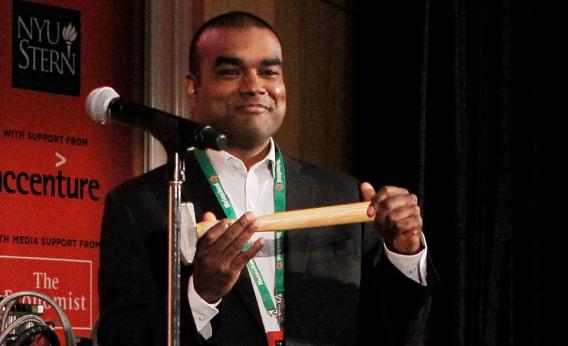Cities around the world are releasing heaps of data to the public. Opening up stats about transit, crime, pollution, education, and other aspects of urban life is meant to improve public services and foster new businesses. But as many cities have learned, it takes a lot more than uploading databases to a website to reap the benefits of open data. The bigger challenge is getting people to participate in government in ways they haven’t done before.
Open data evangelists discussed everything it takes to craft a successful open data agenda at the Ciudad Móvil Conference, a Future Tense event held Thursday in Mexico City. As Mexico City prepares to become the first city in its country with an open data agenda experts from the United States, Mexico, and Argentina examined the leading edge of public data and civic innovation.
Boston and San Francisco are two early success stories in the open data movement. Both have offices devoted to managing city data, which they use to drive innovation—and both knew from the start that merely making data accessible wasn’t enough to improve life in the city.
Nigel Jacob, a co-founder of Boston’s civic innovation office, called New Urban Mechanics, says focusing on partnerships and community engagement is vital. His office works closely with university researchers and community members to find out what questions the city’s data can help answer.
In one example, the office worked with a social scientist in Boston who looked at credit score data in local neighborhoods. An area that is home to a big Brazilian immigrant population had particularly low credit scores despite residents’ marked financial literacy—because they tended not to use banks. So now Jacob’s office is working with a team at MIT to build apps that help people in this neighborhood record their transactions in a way that can boost their credit scores.
This kind of approach is novel for governments, but with small staffs and limited budgets, the offices align themselves more with the startups they’re hoping will spring up around access to city data.
One way to incubate that kind of community is to organize hackathons, in which developers come together to make applications based on city data. The apps made at these events aren’t always completely useful—or completely functional—but the process engages developers by making them think of new things to do with information. Shannon Spanhake, deputy innovation officer for San Francisco, said these events get citizens to realize that their government has interesting problems to solve, while the government realizes its citizens can identify and address new problems. When someone makes an app that could really have an impact on the city, the city’s innovation experts help them build partnerships and turn the idea into a business.
Hackathons also help address a problem specific to innovation offices. With limited resources and the infancy of open data, it’s hard to know how to measure an office’s success. More crucially, it can be difficult to justify these efforts to taxpayers. Spanhake (whose office has a budget of $0) says the developers at hackathons amount to volunteers. Success is measured by the number of volunteer hours combined with the number of products created with city data and the number of data sets released to the public.
Altogether it’s a good deal for governments and citizens alike. By releasing data and working to make sure people interact with it, cities harness the expertise of their people. The people working with the data get a chance to have an impact on their city, and the products they create can lead to new businesses and economic opportunities.
So when cities launch new open data initiatives, they need to realize that opening the data to the public is just the first step. The most important work is in making everyone realize just how powerful open data can be.
Also in the Future Tense package on government and open data: why Yelp and the government should share data; what a burger mob tells us about the future of democracy; the fight to keep data free from political influence; and how Mexico is using open data to move beyond its authoritarian past.
